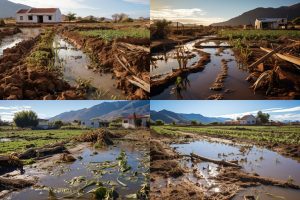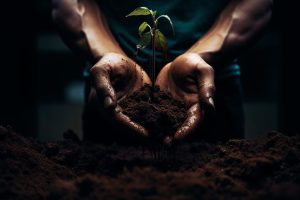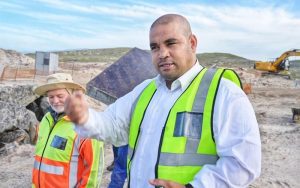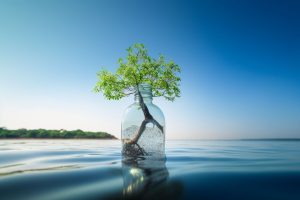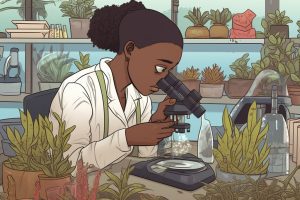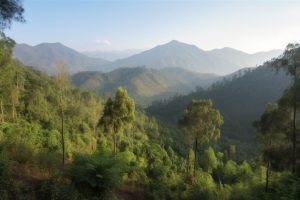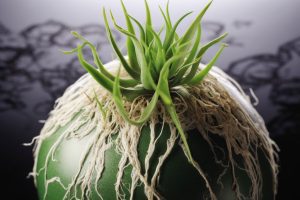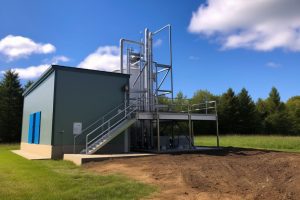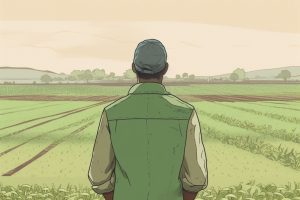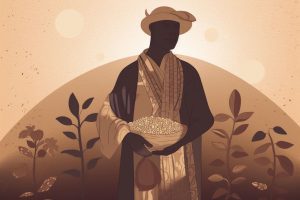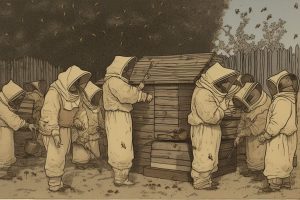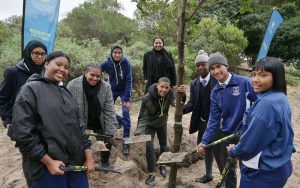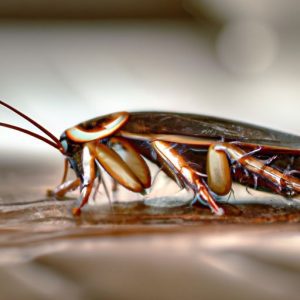In recent years, the color of the Earth’s vast oceans has been gradually changing from striking blue to verdant green. This shift is a result of humaninduced climate change, with farreaching implications for the ocean’s health and essential resources such as fishing and oxygen production. South Africa, with its extensive coastline, is home to various marine environments, and this ecological turmoil poses challenges for marine life as they struggle to survive.
Smallscale farmers in the Cederberg region of the Western Cape, South Africa, have been relying on their fertile lands to grow crops and sustain their families for many years. However, the recent floods that swept through the area have left behind a trail of devastation. The local agricultural community is struggling to recover from the worst flooding in four decades.
Climate change is a pressing issue that affects communities worldwide. In response, the Mpungose community of Eshowe, located in Northern KwaZuluNatal, South Africa, has developed a groundbreaking Manifesto to address the detrimental effects of climate change on their daily lives.
Cape Town, in response to climate change and growing urbanization, has adopted a comprehensive plan to redevelop its coastlines, vleis, and urban spaces. The city has allocated a budget of over R1.2 billion to undertake various projects aimed at enhancing the city’s resilience, environmental sustainability, and socioeconomic development.
Minister of Forestry, Fisheries, and the Environment, Ms. Barbara Creecy, delivered the 2023/2024 budget vote in the National Council of Provinces (NCOP), highlighting various initiatives and programs aimed at addressing climate change, biodiversity loss, and environmental pollution. ### Waste Management Improvements
The global landscape is fastpaced and constantly changing, presenting humanity with both opportunities and challenges. At the International Meeting of Highlevel officials responsible for Security Matters, South Africa’s Minister Khumbudzo Ntshavheni shared her observations on international security matters. ### Climate Change and its Impact on Africa
South Africa’s Minister of Higher Education, Science, and Innovation, Dr. Blade Nzimande, recognizes the essential role of science, technology, and innovation (STI) in addressing the country’s most pressing issues. The STI Presidential Plenary Forum, established by the Minister, seeks to unite multiple sectors in implementing a science for social justice agenda.
Biodiversity and Climate Change: A Threat to Humanity Biodiversity loss and climate change are critical concerns that threaten the existence of humanity. Urgent action is required to safeguard ecosystems and the millions of species that rely on them.
Ms. Barbara Creecy, Forestry, Fisheries, and the Environment Minister, recently delivered the Budget Vote 2023/24 for the Department of Forestry, Fisheries, and the Environment. In her speech, she emphasized several key initiatives and projects aimed at preserving South Africa’s natural resources, combating climate change, and enhancing the nation’s biodiversity.
South Africa’s Department of Agriculture, Land Reform and Rural Development (DALRRD) recently presented its Budget Vote for the 2023/24 financial year. In response to the challenges faced by rural communities due to extreme weather events, the COVID19 pandemic, and an ongoing electricity crisis, the department emphasized several key initiatives aimed at empowering and uplifting these communities. The following sections highlight some of the initiatives described in the budget vote.
South Africa’s Balancing Act: Navigating the Global Dynamics between the West and BRICS
As a regional power and a member of the BRICS bloc, South Africa is facing a challenging position as it attempts to navigate the complex global dynamics between the West, particularly the United States, and the BRICS countries. The country must delicately balance its relationships with both sides while also promoting its national interests.
South Africa’s agricultural sector must undergo transformation and evolution to redress the historical injustice of the Native Land Act and ensure economic growth, social wellbeing, and environmental sustainability. This article explores the necessary steps to revitalize the agricultural sector, including investments in underutilized communal lands, enhancing rural economies, tackling climate change, empowering previously disadvantaged farmers, and leveraging technology for rural development.
Seed sovereignty is a crucial issue facing smallscale farmers and communities in Africa. The Last Seed is a timely and important film that explores the impact of seed patenting on farmers and their livelihoods. This article will discuss the film’s key themes and its call to action for sustainable agriculture.
Honeybees play a vital role in maintaining the health of the planet’s ecosystem. They are responsible for pollinating a third of the food we eat, including fruits, vegetables, and nuts. However, honeybees are facing numerous threats, such as habitat loss, pesticides, climate change, and disease, which have contributed to the decline in bee populations.
An educational program was held at Westridge Gardens to celebrate World Earth Day, which was a success with the participation of sixty learners from Princeton Secondary in Woodlands. World Earth Day is an annual celebration that began in the United States in 1970 and is celebrated every April 22. This year’s theme was “Invest in Our Future,” emphasizing the importance of investing in the local green economy, reducing personal carbon footprint, and promoting sustainable livelihoods.
South Africa is currently facing a severe infestation of German cockroaches due to the rising temperatures and increasing humidity caused by climate change. CropLife, a nonprofit organization that represents manufacturers and suppliers of pesticides, has identified the usage of unregistered pesticides for indoor use and inadequate hygiene practices as the leading factors behind this outbreak.


